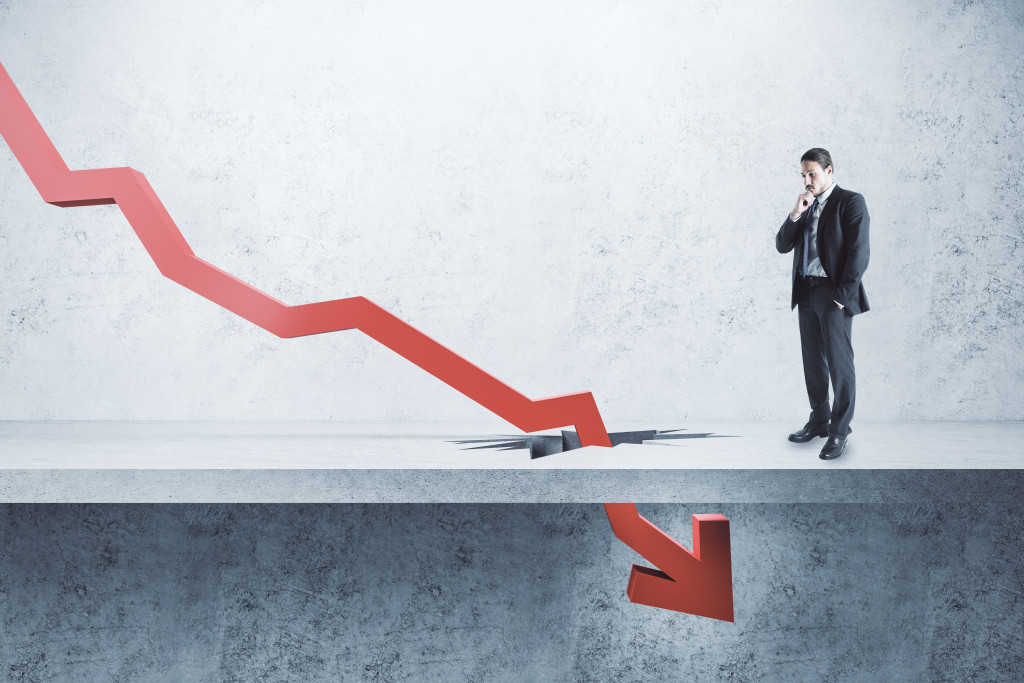- Conduct a financial health check to review the current economic situation.
- Cut costs and control spending by creating a budget, negotiating with suppliers, lowering overhead costs, controlling inventory, and diversifying revenue streams.
- Maintain positive relationships with creditors and explore restructuring debt options.
- Prepare for bankruptcy and consult with a bankruptcy attorney.
- Stay informed on economic trends, develop contingency plans, and seek professional advice.
An economic crisis can strike anytime, often hitting small businesses the hardest. The recent pandemic has caused significant disruptions in the global economy, putting many small businesses at risk of foreclosure and bankruptcy.
In these unprecedented times, protecting your assets and safeguarding your business from financial disaster is essential. This article will explore practical tips and strategies to help weather the storm and protect your small business assets during an economic crisis.
Conduct a Financial Health Check
Conducting a financial health check is the first step in protecting your small business assets. This involves reviewing your current financial situation, analyzing your cash flow, and identifying any potential risks or weaknesses in your business. You should also check your insurance policies and ensure that they are up to date and sufficient to cover any losses or damages that may occur during an economic crisis.
Cut Costs and Control Spending
One of the biggest challenges for small business owners is controlling spending. With a limited budget and resources, you must know where and how you allocate funds. However, knowing where to start when trying to cut costs can be difficult. So here are some tips:
Create a Budget
Creating a budget is essential to help you keep track of your spending. It lets you see where your money is going and what expenses you can reduce. Start by listing all your monthly payments, including rent, utilities, salaries, and any other costs you have.
Negotiate with Suppliers

Negotiating with suppliers is an effective way to cut costs without cutting corners on your business operations. Ask for a discount, bulk pricing, or extended payment terms. You can also shop around for better deals if you haven’t already. Use your supplier’s competitors to get a better offer.
Lower Overhead Costs
Overhead costs can be one of the most significant expenses for a small business. To reduce these costs, try working remotely or leasing less office space. You can also reduce energy costs by turning off equipment when not in use and opting for energy-efficient equipment to save on your power bills.
Control Your Inventory
Managing inventory is another way of cutting costs. Take the time to research and plan the inventory stock levels and analyze the sales data regularly to ensure they are optimized. Managing inventory means stocking the items that sell well and not storing obsolete and underperforming inventory.
Diversify Your Revenue Streams
Relying on a single revenue source can be risky during an economic crisis, increasing your vulnerability to market disruptions. Diversifying your revenue streams can help mitigate this risk and protect your assets. This can involve offering new products or services, expanding into new markets, or finding alternative sources of income, such as online sales or affiliate marketing.
Maintain Positive Relationships with Creditors

During an economic crisis, creditors may aggressively pursue their debts. To protect your small business assets, it is essential to maintain positive relationships with your creditors and communicate openly and honestly about your financial situation. You should also explore options for restructuring your debts, such as debt consolidation or negotiation, to minimize the impact of outstanding debts on your business.
Prepare for a Bankruptcy
You may struggle to make ends meet, and creditors knocking on your door. But there is a solution that can help you protect your business and get back on track – Chapter 13 bankruptcy. This type of bankruptcy allows you to reorganize your debt and create a manageable payment plan while keeping your business operational. It’s essential to prepare for bankruptcy before it’s too late. By consulting with a bankruptcy attorney and understanding your options, you can take control of your finances and protect your business during tough times.
Stay Informed and Plan Ahead
Finally, it is essential to stay informed and plan to protect your small business assets during an economic crisis. You should stay current on economic trends and developments that may impact your business and develop contingency plans to address potential risks and challenges. This may involve creating a disaster recovery plan, implementing cash flow forecasting, or seeking professional advice from a financial advisor or accountant.
Final Thoughts
An economic crisis can be challenging and stressful for small business owners, but it is also an opportunity to strengthen your business and protect your assets. Remember, every crisis is an opportunity for growth and innovation – so stay positive, stay focused, and keep your eye on the horizon!











